A Reading with Carl Hancock Rux
Fordham undergraduates and professors enjoyed a reading by award-winning poet, playwright, novelist, essayist and recording artist Carl Hancock Rux on January 26th. A native New Yorker, Rux prefaced his works by explaining how his experiences in the city — from the first years of his life spent in East Harlem to growing up in foster care in the South Bronx — inform his work.
Rux began the reading with three excerpts from his first collection of poetry, Pagan Operetta. The poetic memoir details much of Rux's early life and the pieces he chose to read recounted raw memories from his childhood. In "Blue Candy" Rux recalls his grandmother's death through the simple language of his four-year-old self. In a letter to a friend, Rux details his first experience of leaving the United States, his travels to Ghana and Paris, and his attempts to avoid a dying childhood friend.
Both readings from Pagan Operetta proved Rux's interdisciplinary talents as his voice shifted between verse and song to fit the tone of each different piece.
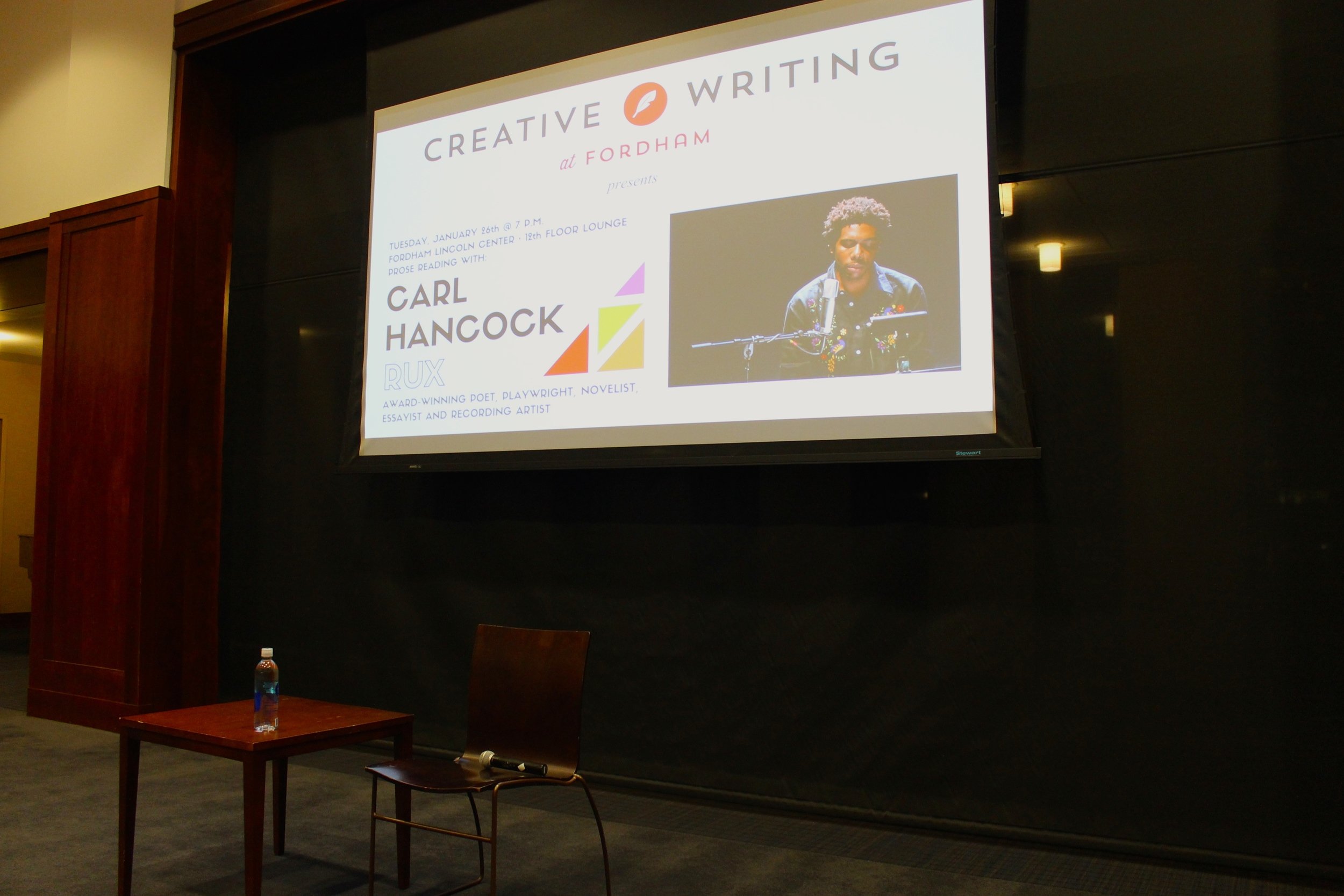
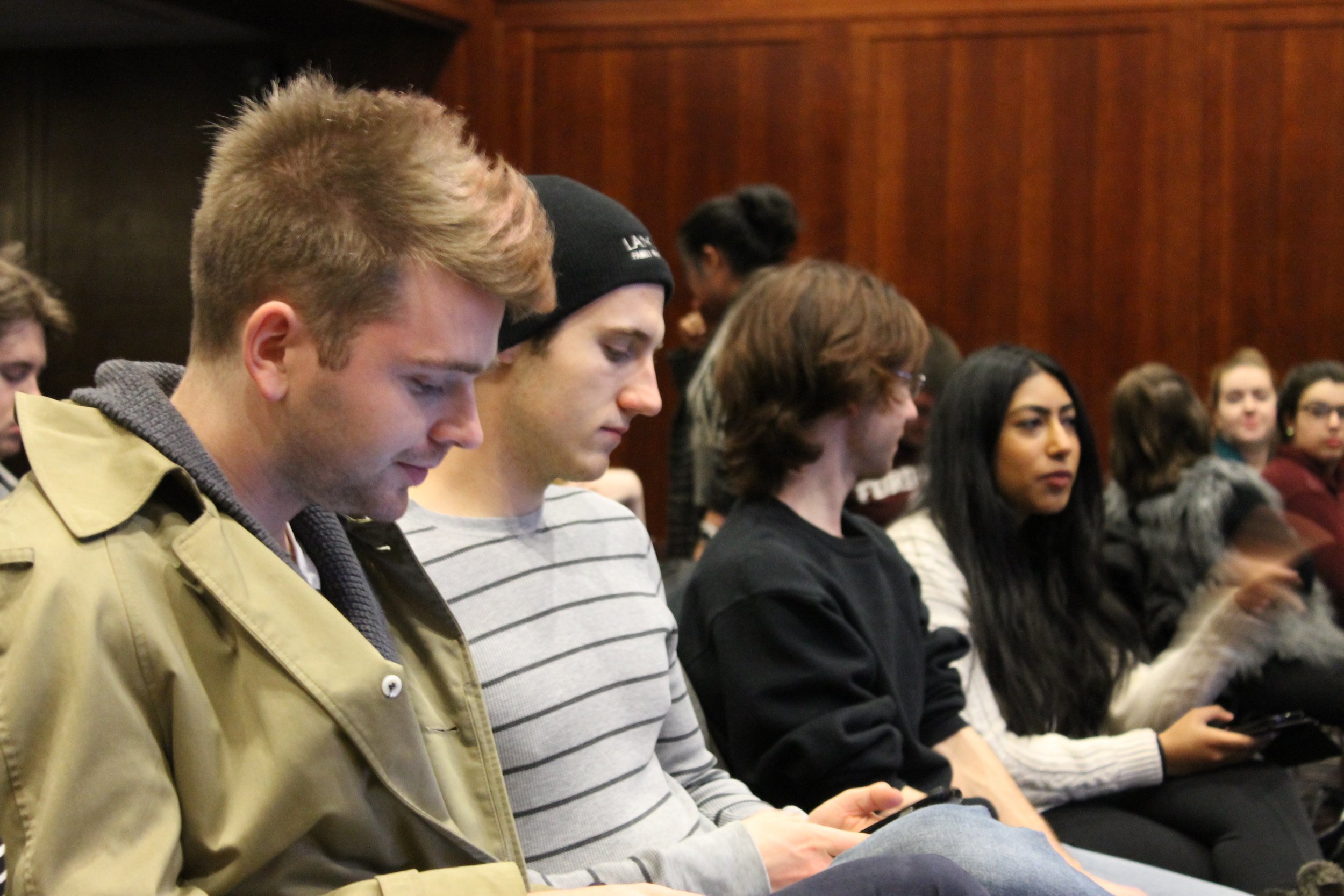
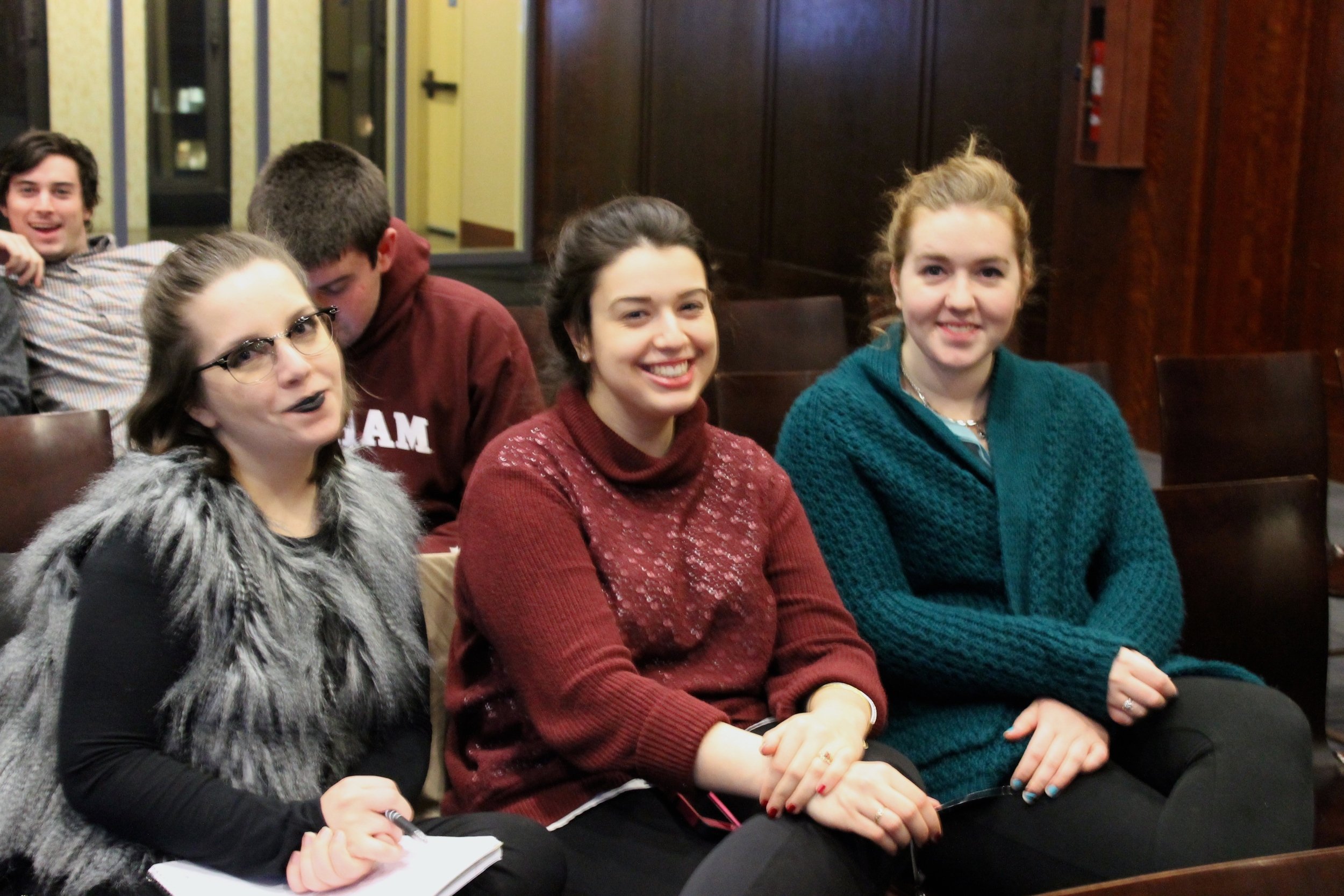
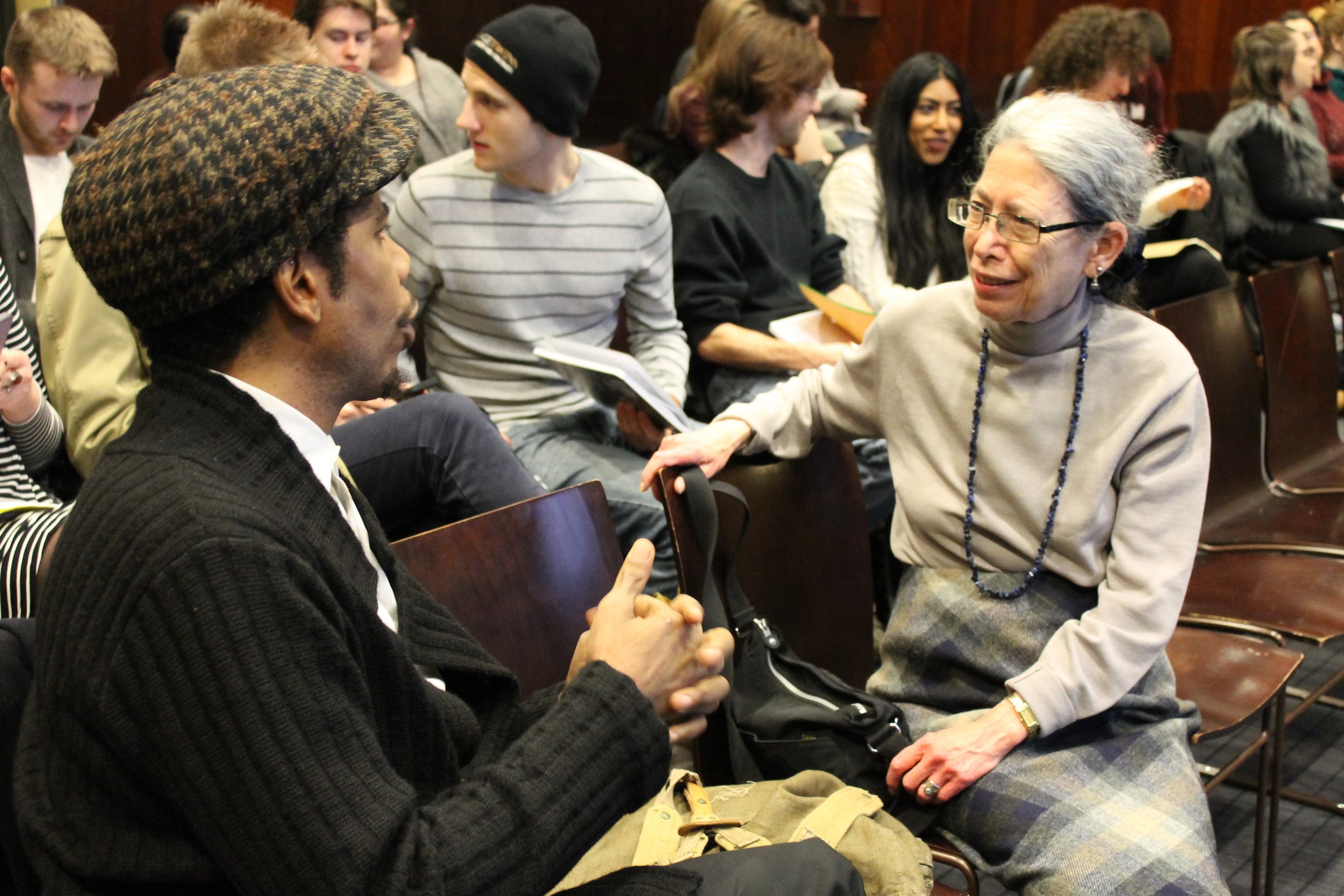
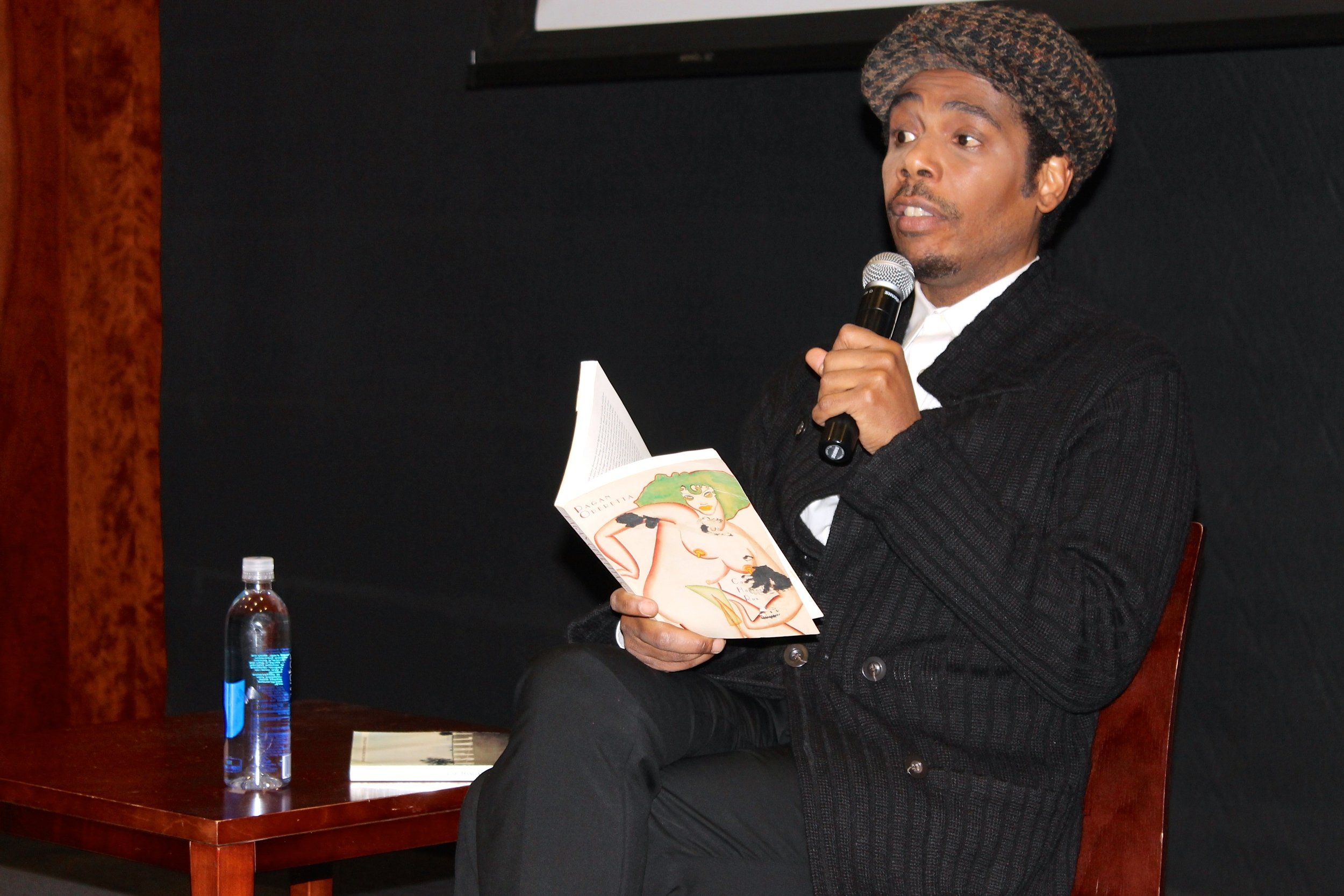
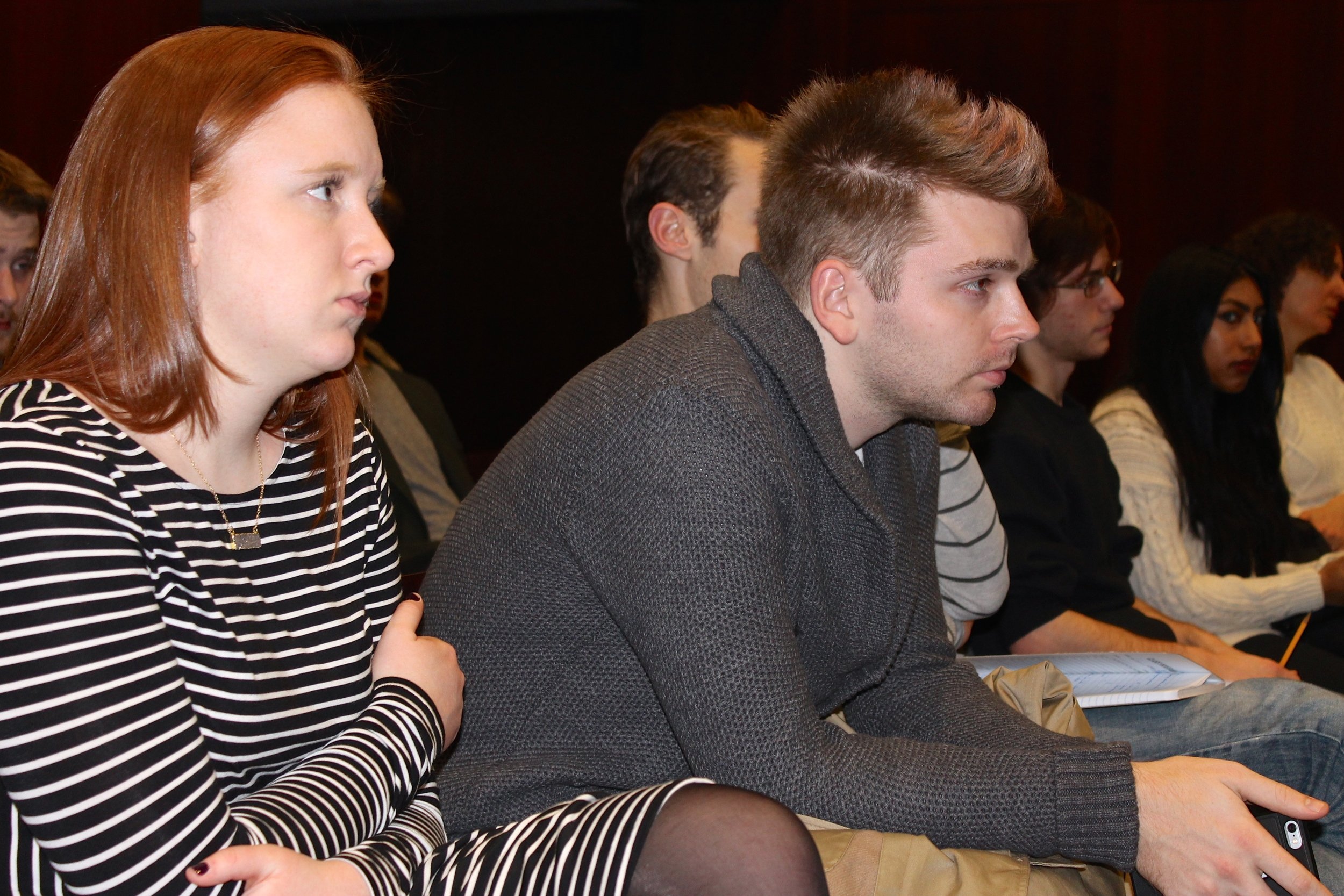
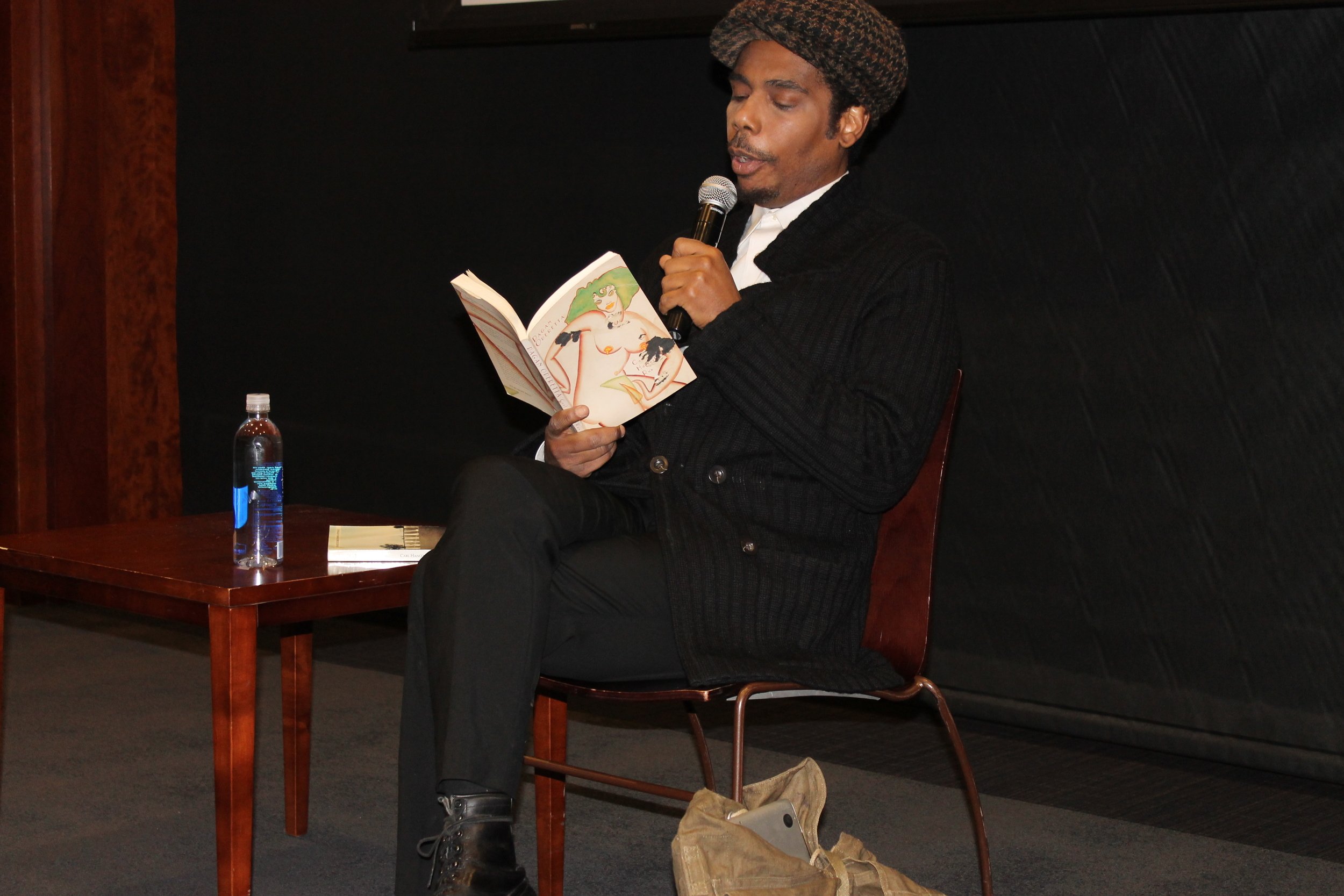
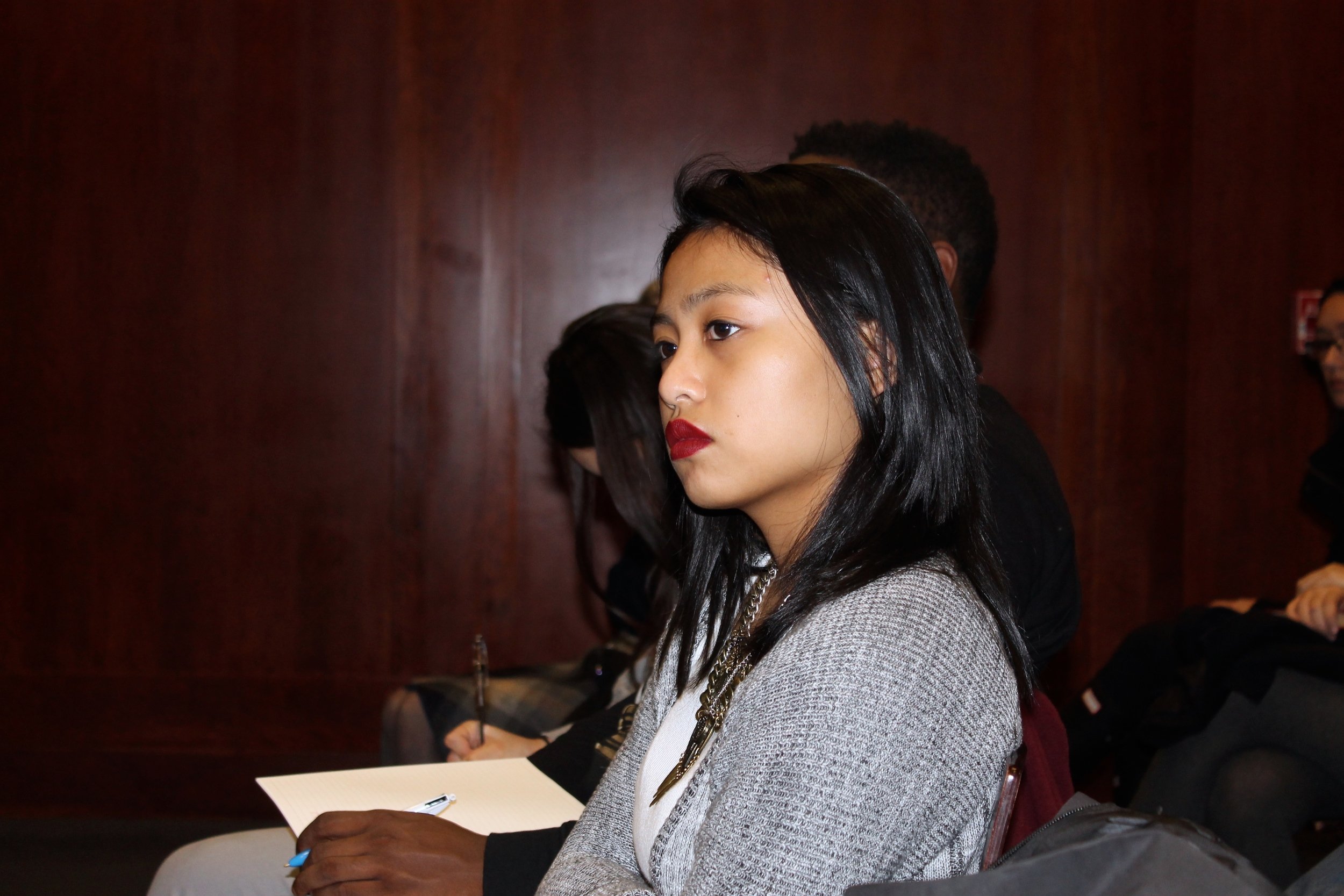
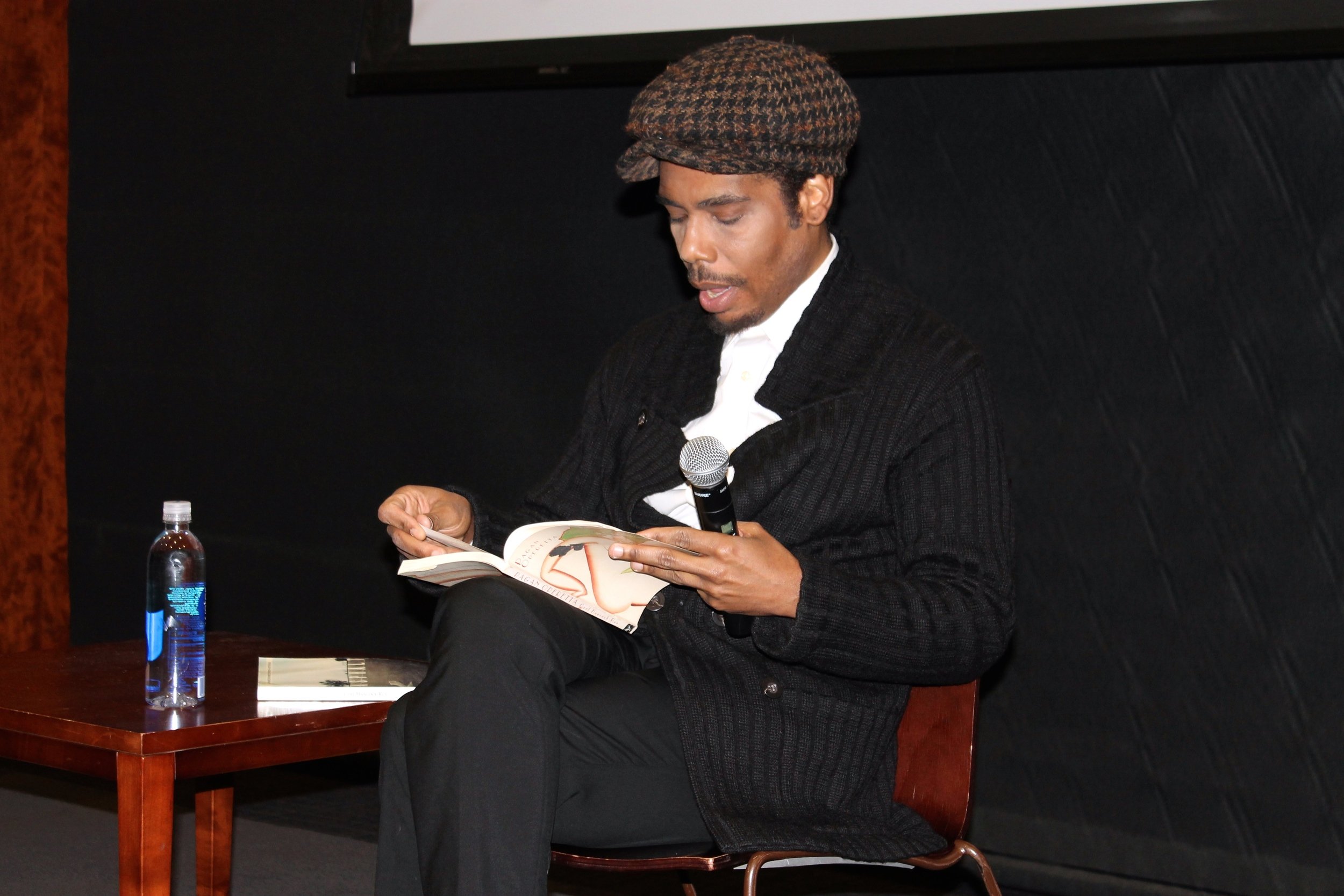
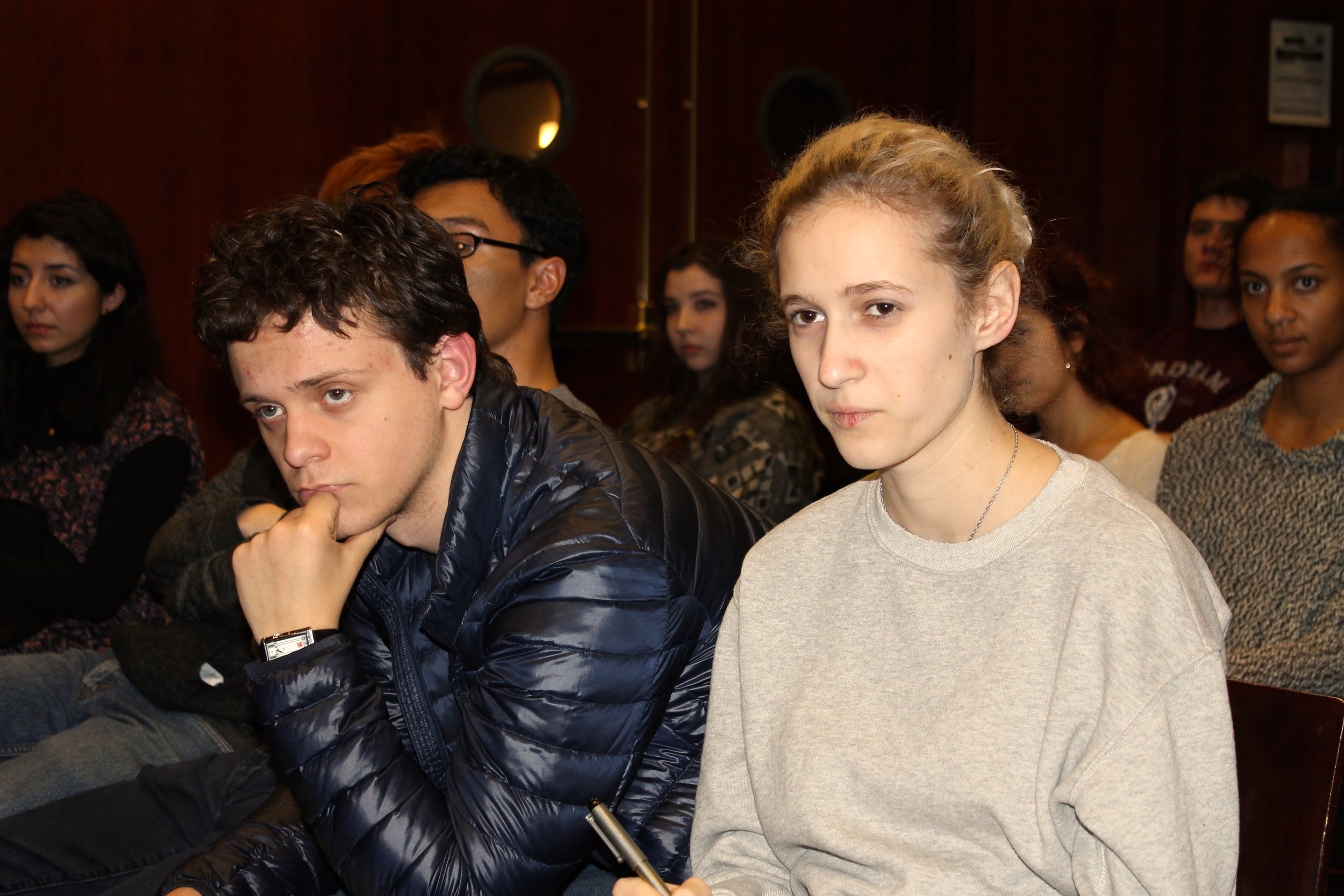
Rux also read from his debut novel, Asphalt. The novel tells the story of Racine, a DJ who returns from abroad to a war-stricken, post-apocylptic New York City. Along with other squatters, Racine transforms a Brooklyn brownstone into a dance club. The excerpt from which Rux read confronted the issues of poverty, despair, and urban decay in Racine's Brooklyn neighborhood and the futility of the city's efforts to preserve Manhattan for "when the rich people return."
After the reading, Rux answered questions from creative writing students and professors.
One student asked, "How often do you feel self doubt when you're writing?"
Rux explained that he doesn't feel self doubt, exactly, but that writing Pagan Operetta was "cathartic, emotional, and painful" because of its autobiographical nature. "I could see my life literally on page," he told the student. Rux passed on advice from a friend that helped him to overcome the guilt he felt for exposing family secrets: "You reserve the right to invade your own privacy, always."
He added that the feelings of self doubt or writer's block are always something else, a question that can drive your work but that you're momentarily having trouble answering. "Remove the doubt and embrace the question," he advised.
Another student asked, "Do you ever write work that you don't want or don't need to share?"
"No," Rux responded quickly. "Not necessarily published, read by me, or or heard by others in my lifetime — but shared — absolutely."
Picking up on the tone of students' questions, Director of Creative Writing Sarah Gambito asked Rux to share his top three gifts to young writers.
"I love that," Rux smiled before offering his parting advice to creative writing students.
Rux's first gift is one he once received from social activist and a cappella performer Bernice Johnson Reagon: "Tap into what is incomplete in yourself and allow it to be a gift."
His second gift was a dose of confidence to young writers.
"You know more about what you're trying to do than anyone else does. Embrace what you think you know about now and convince everyone else."
His last gift echoed earlier sentiments about writing as a process of reading and learning.
"Constantly return to history. Constantly read. Everything has been written before, but not by you."